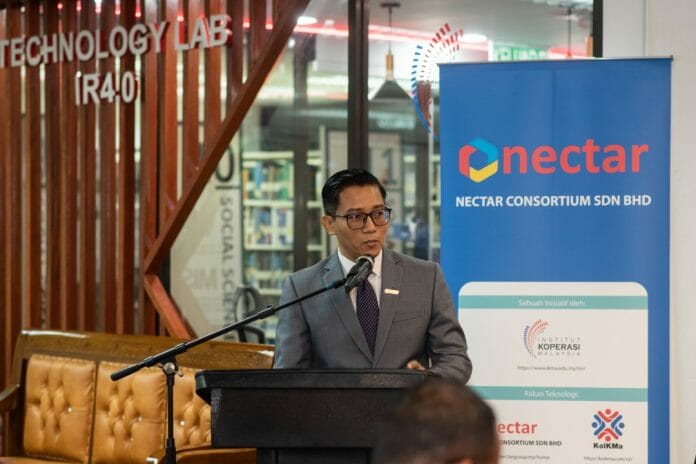Tech provider, Nectar has developed Malaysia’s first digital plantation management application called DEMA, to digitalise work processes in the plantation sector.
Manpower shortage has been one of the main reasons for declining productivity across the country’s plantation industry since the start of the Covid-19 pandemic.
While some may think the answer to the labour shortage problem is by bringing in more foreign workers, a Malaysian tech firm offers a more sustainable alternative.
DEMA, which stands for Digital Estate Management Application, was launched in July 2022 by the Ministry of Science, Technology and Innovation, is aimed at making field data management easier and quicker for plantation operators.
“The digital solution was designed to help tackle the labour shortage and encourage more local workforce to drive the agriculture sector by leveraging Nectar’s technology,” Nectar managing director Ahmad Tarmizi Mukhtar said.
“Our digital solution can also reduce operating costs and enhance yield between 30 and 40 per cent on average. With our national food security at risk, we can’t afford to continue with the old style of managing farms and plantations,” he added.
“The problem we are facing now is that we rely heavily on foreign labour for the agriculture and plantation sectors. With DEMA, we are targeting locals to participate and capitalise on the available land by entering into contract farming offered by Nectar. Eventually, they would own a plantation and become business owners.”
Ahmad Tarmizi said the whole idea behind digitalising the plantation business was to streamline the entire process and attract young talents as well as existing business communities to look at the sector as a lucrative business.
“Today we have a pool of young talents doing ride-hailing which may be tiring and, to some extent, a dangerous job. Here we are offering a ‘smart’ alternative where these young talents can play with technology and empower our food security sector,” he said.
“DEMA users would be able to access the application on their mobile devices anytime to track and operate their business, thanks to a unique project collaboration with Maxis and DiGi,” he added.
For instance, any land or building owners can collaborate with Nectar’s farmers to develop agriculture using the TEROKA system, a mini version of DEMA.
“They could start with one acre and get used to Nectar’s system. In fact, many cooperatives are using TEROKA to grow chillies and cucumbers,” he continued.
“We have translated heavy capital expenditure into reasonable operating costs to ensure operational sustainability. Nectar has made the farm-to-table approach possible.”
The application would significantly help reduce manpower reliance and boost efficiency, he stressed.
“If you are operating a 10-acre plantation through the conventional method, you may need about 10 workers.
“However, by using DEMA, you’d probably need to hire just an intern or a fresh graduate, for support during the harvesting process while you can still monitor it through the app.”
The app is powered by Maxis, Aurora Cloud and integrated vehicle tracking system Katsana.
DEMA runs on mobile devices and allows planters to record data, run real-time business tracking and monitor activities on the field.









